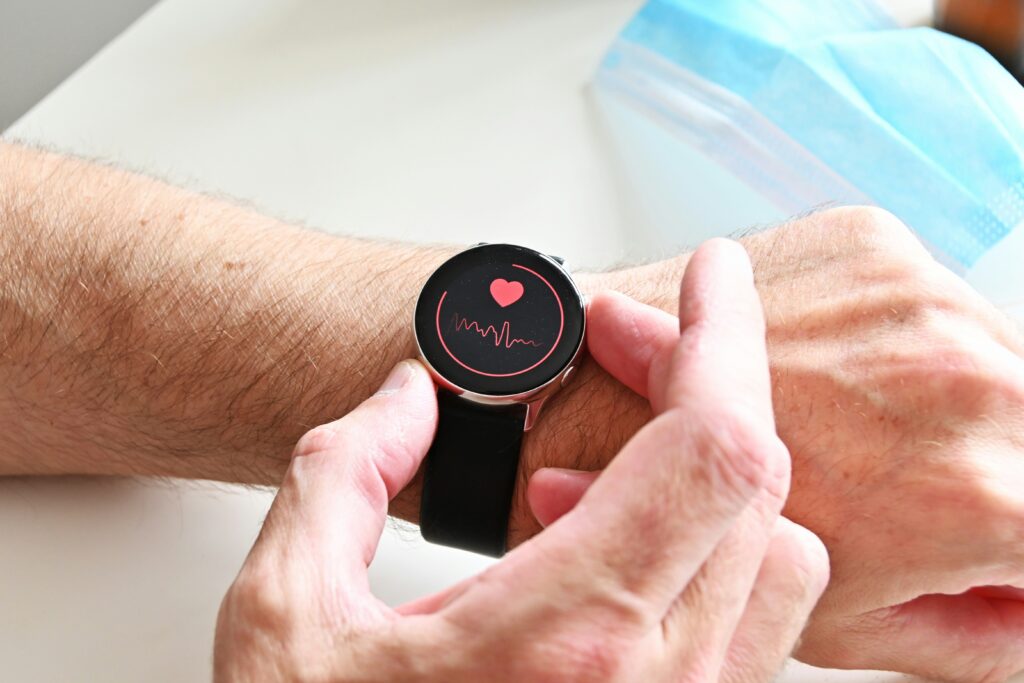Heart Health Awareness in February
Did you know that heart disease is the leading cause of death in Canada for both men and women? Heart disease is often known as the silent killer because it has few or no outward symptoms. While there are “common presentations” of a possible heart attack, most of the time we know someone has heart disease because they have just had a heart attack from it.
February is designated as heart health awareness month and serves as a reminder for us to prioritize our health check-ins. In this blog, I will explain what heart disease is, healthy lifestyle prevention strategies, how heart health varies between men and women, and the importance of hormones and their reduction in the risk of heart disease.
What is heart disease?
Heart disease encompasses various conditions affecting the heart’s structure and function. The most prevalent form is coronary heart disease, where plaque buildup in arteries reduces oxygen-rich blood flow, leading to potential heart attacks. Coronary heart disease, like most heart diseases, is a lifelong condition — once you get it, you’ll always have it. This condition is persistent and requires lifestyle changes for better health.
The Gender Gap in Heart Disease
It’s essential to recognize that heart disease affects men and women differently. There is a common misconception that heart disease and heart attacks disproportionately impact men compared to women. However, the reality is that heart disease is the foremost cause of death for both men and women in Canada.
Understanding the gender gap is crucial for promoting comprehensive heart health.
Women and Heart Disease
Historically, heart disease has been perceived as primarily a men’s health issue, leading to delayed diagnosis and treatment for women. Women are faced with an increased risk of heart disease if they are diabetic, more so than men, and are significantly at higher risk due to hormonal changes such as during and after menopause.
Symptoms for women can be subtle. Unlike the chest clutching pain that men experience during a heart attack, women’s symptoms can range from fatigue, sweating, shortness of breath, tightness in chest, shoulder pain and nausea.
As women enter menopause, estrogen levels begin to decline. Estrogen has protective effects against cardiovascular disease, and I want to urge you to consider if it is time to get your hormone levels checked (either in blood or urine, using a comprehensive dried urine hormone panel, commonly known as DUTCH). Ideally, we may use both.
Men and Heart Disease
Even though men tend to develop cardiovascular issues earlier than women, they are more likely to ignore issues and avoid seeking medical advice until it’s too late.
Common symptoms of heart problems in men include chest pain or discomfort, shortness of breath, fatigue, and even pain or discomfort in the arms, back, neck, or jaw.
Simple Ways to Improve Your Heart’s Health

There are many ways to boost your health and lower your risk of heart disease and, by extension, other health issues. Many of them are small tweaks that can be done in your day-to-day, from diet and other lifestyle improvements to added movement throughout your day.
1. Regular Check-ups
We encourage everyone to prioritize regular check-ups. We offer annual physical exams and blood work. This includes monitoring blood pressure, cholesterol levels, and other key indicators can catch potential issues early.
2. Eat a Heart Healthy Diet
Opt for a diet rich in nuts, fruits, vegetables, whole grains, and lean proteins. Limit intake of saturated and trans fats, as well as sodium.
3. Stay Active
Regular physical activity, even if it’s just a brisk walk, can significantly benefit your heart. It not only supports cardiovascular health but also helps people maintain overall fitness and health. Aim for at least 150 minutes of moderate-intensity exercise per week.
4. Manage Stress
Chronic stress can negatively impact your health. Incorporate stress-reducing activities into your routine, such as meditation, prayer, deep breathing exercises, or yoga.
5. Quit Smoking
Smoking is a major risk factor for heart disease. If you smoke, seek support to quit and enjoy the immediate and long-term benefits to your health.
Cholesterol Basics
Cholesterol levels should be measured every 3 years or more frequently, depending in your health history and results. When we test your cholesterol levels, and we are looking for low LDL (low density lipoprotein -ideally below 2.5 ) as elevated levels are known to be damaging, and higher HDL (high density lipoproteins – ideally above 2.0), are known to be protective.
We also measure your Apolipoprotein B – which is a collective measure of negatively impacting cholesterols and we want this number below 1.0 mg/ml.
These are what we call precursors to good health, or markers of inflammation, and help to guide lifestyle choices, nutrient choices, dietary changes and sometimes medications.
Make Conscious Choices for Your Health
Heart Health Month provides an excellent opportunity for all of us to re-evaluate our lifestyles and make conscious choices that support a healthy heart. By understanding the unique aspects of heart health for both men and women, we can work towards a future where heart disease is prevented, detected early, and effectively managed.
Consider this your heart health month and come in for some detailed diagnostics and workup if you are 40+, female, male or otherwise, and are interested in taking control of your health and optimizing your hormones. Let’s commit to making heart-healthy choices not just in February, but throughout the year, for a lifetime of cardiovascular well-being.
Courtesy of Dr. Jordana Aziz, ND
References:
- https://www.ncbi.nlm.nih.gov/pmc/articles/PMC10074318/#:~:text=The%20protective%20role%20of%20estrogen,in%20oxidative%20stress%20%5B5%5D
- https://www.ahajournals.org/doi/full/10.1161/01.cir.93.10.1928
- https://europepmc.org/article/ppr/ppr499122
- https://jamanetwork.com/journals/jama/fullarticle/2768806

